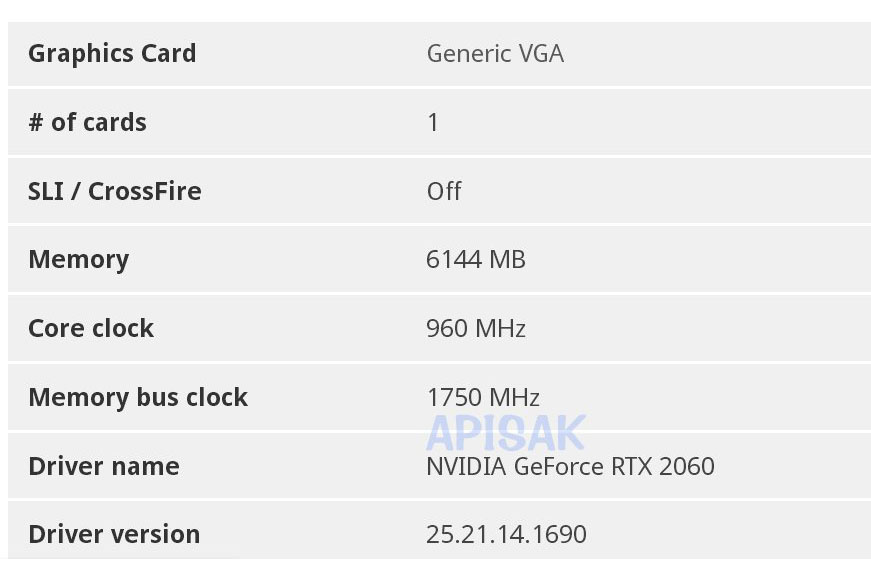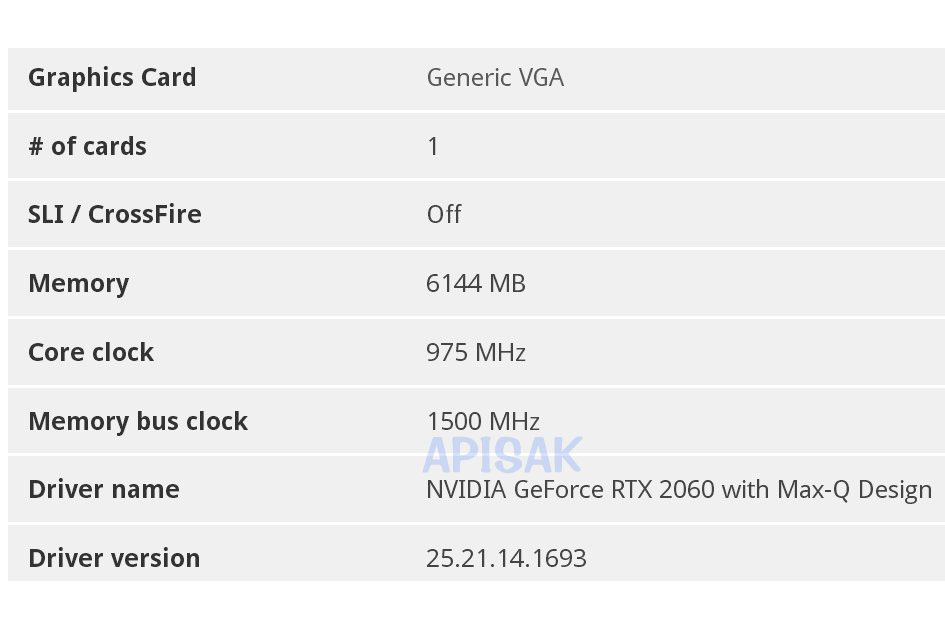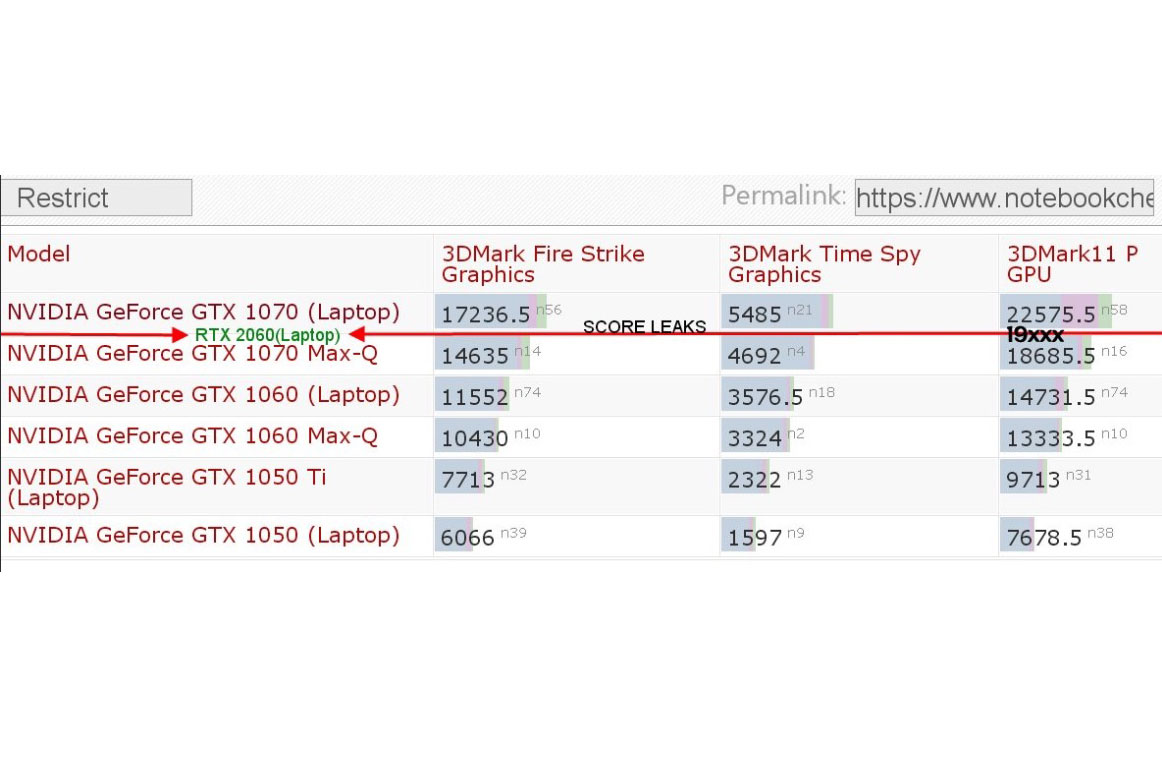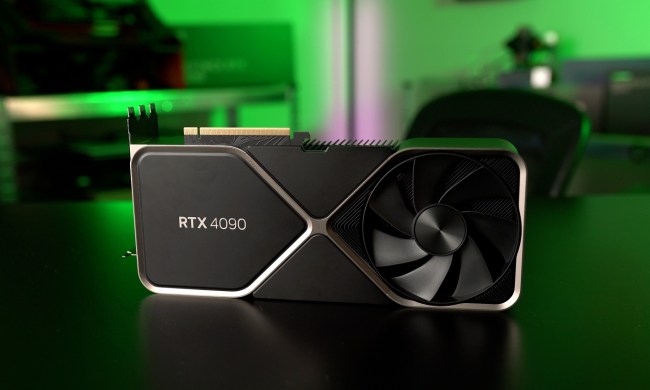Fans of Nvidia’s gaming chipsets will be excited to hear that a mobile version of the company’s RTX 2060 GPU will be heading to laptops, along with a Max-Q variant aimed at thin and light machines. Newly leaked pre-release benchmarks on the 2060 Mobility, run by 3DMark, appear to place the graphics chip’s performance slightly above the existing GTX 1070 Max-Q and somewhat below the GTX 1070 Mobility. The latest discovery comes via known leaker Apisak, who discovered the benchmarks via entry from a yet to be announced Lenovo laptop.
Apisak, who appears to live for discovering new devices, has only shared a limited portion of the Geekbench results, but it is enough to give us detailed specifications on each chip. The RTX 2060 Mobility is reported at a 960 MHz core clock with 6GB of memory with a bus speed of 1,750 MHz. The RTX 260 Max-Q comes in with a slightly higher core clock at 975 MHz, but a slower bus clock of 975 MHz with the same 6GB of memory.
The mobile line of RTX graphics processing units is a followup to Nvidia’s launch of the Turning graphics architecture for desktop machines. The new architecture is quoted by Nvidia as “the biggest architectural leap forward in over a decade,” and enables features such as hybrid rendering — a mix of both rasterization and real-time ray tracing; however, it is worth noting that the promise of ray tracing on the RTX 2060 is currently in the air. Advancements have also been made in the chips ability to handle artificial intelligence within games.
It’s important to note that leaked specifications and benchmarks are always subject to change. Apisak stated on his Twitter feed that information reported does not display final performance of the chip. Additionally, another 3DMark score had surpassed the ones he initially shared. As of now, the chips are rumored to be based off the TU106 silicon that has been created by TSMC; the rumor has yet to be confirmed.
Onlookers who are curious about Nvidia’s launch date for the two new chipsets will be disappointed to hear that nothing has been officially announced. However, based on the time of the year at which benchmarks are beginning to leak, it wouldn’t be a surprise if we see an official presentation, along with new laptops featuring the silicon, at CES 2019 next month in Las Vegas.






